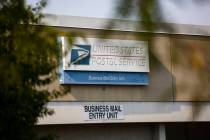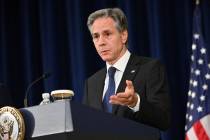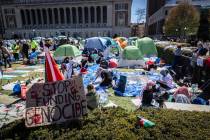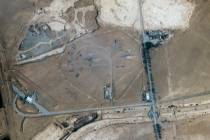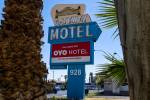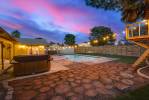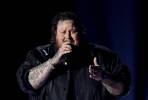Raggio wants state tax study group to be balanced
CARSON CITY — State Senate Minority Leader Bill Raggio warned today that a citizens committee expected to propose changes in taxes and state spending to improve the qualify of life in Nevada must not be filled with “tax users” for its recommendations to win public acceptance.
“The stakeholder group cannot be lopsided,” he said. “It has to be balanced. It cannot be tilted in favor of whose who receive taxes, rather than those who pay the taxes.”
Raggio, R-Reno, made the comments during a meeting of the Legislative Subcommittee to Conduct a Review of Nevada’s Revenue Structure.
The subcommittee, dominated by Democrats, is expected next month to name a private research firm to conduct a nine-month study of Nevada’s taxes and make recommendations on those that might be increased or modified.
Gov. Jim Gibbons vetoed a bill to fund the tax study — the third major one conducted over the last 20 years — but Legislative Counsel Brenda Erdoes said legislators can use money in their contingency fund to pay costs, likely in the $500,000 range.
In conjunction with the tax study, the subcommittee next month also will name a group of about 15 people who will make recommendations on the type of Nevada they want to see in the future.
This so-called stakeholder group presumably will come up with recommendations on state spending at the same time the private firm finishes the tax study next fall.
The plan calls for the firm that does the tax study also to lead the meetings of this group.
Senate Majority Leader Steven Horsford, D-Las Vegas, questioned whether Nevada residents want a state that ranks near the bottom in its support for education and near the top in its rate of students dropping out of high school.
“We need to embark on a plan on where we want Nevada to be five, 10, 20 years from now,” Horsford said.
The discussion on having Nevada residents look for ways to improve the quality of life came on the same day that Children’s Health Magazine ranked Las Vegas as the eighth worst city out of 100 surveyed to determine which were best to raise a family.
But during the public testimony, Las Vegas resident Knight Allen lamented why the Legislature is doing another tax study.
“Why in the name of heaven would you do it to yourself again?” he asked. “If you don’t learn from history, you are doomed to repeat it. You have the best tax system in the country.”
But Raggio, a 37-year member the Senate, himself last spring sponsored legislation that called for another tax study.
At the time, he noted that Nevada’s average tax burden on residents has consistently been ranked among the five lowest in the nation by the Tax Foundation, a nonpartisan tax research organization based in Washington, D.C.
The foundation in August 2008 reported that Nevada had the nation’s second-lowest state and local tax burden at 6.6 percent of residents’ income. The national average was 9.7 percent.
Nevadans on average pay $3,245 a year in state and local taxes, according to the Tax Foundation.
The foundation study did not consider state and local taxes paid by tourists.
When those taxes are added to the mix, Nevada ranks 25th nationally in its state and local tax burden.
No decision was reached on how the legislative subcommittee will choose people to serve on the stakeholder group. Those who want to serve should contact Russell Guindon, a legislative fiscal analyst, at 775-687-6821. Members will be selected in an October meeting.
Past tax studies largely have been rejected by the Legislature. The 1989 Price Waterhouse study recommended a 3 percent business profits tax and a requirement that consumers pay sales taxes on services such as dry cleaning and auto repairs.
The 2001 Governor’s Task Force on Taxation recommended a 0.25 percent gross receipts tax and a myriad of other taxes, including one on going to the movies. Legislators quickly rejected these recommendations, although the 2003 Legislature raised a number of taxes that produced a then-record $833 million, two-year tax increase.
That record was broken by the 2009 Legislature that raised taxes by $1 billion over the next two years. Most of those increases, however, expire on June 30, 2011, unless reauthorized by the 2011 Legislature.
Contact reporter Ed Vogel at evogel@reviewjournal.com or 775-687-3901.
ON THE INTERNET
All past tax studies, and their recommendations have been posted on the Legislature’s Web site:
http://www.leg.state.nv.us/lcb/research/library/HotTopics/FiscalAffairs/Fiscal.cfm










